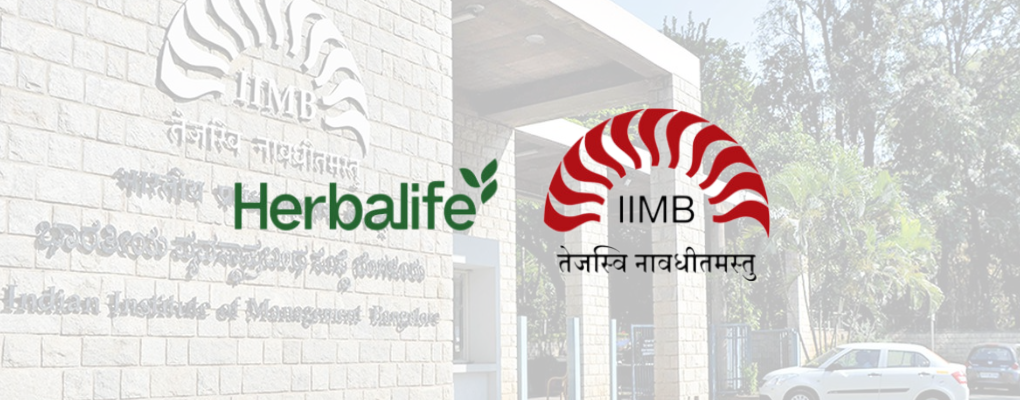On April 3, 2024, the Indian Institute of Management Bangalore (IIMB) announced its partnership with wellness company Herbalife India for the TCI-IIM
On April 3, 2024, the Indian Institute of Management Bangalore (IIMB) announced its partnership with wellness company Herbalife India for the TCI-IIMB Supply Chain Sustainability Lab. This collaboration marks a significant step towards enhancing education and innovation in sustainable supply chain practices. Established in 2023, the lab is dedicated to promoting sustainable supply chain practices, knowledge dissemination, and advocacy through various research and development initiatives. Over the past year, the lab has focused on reducing plastic packaging and striving for net-zero impact.
The TCI-IIMB Supply Chain Sustainability Lab adopts a comprehensive five-pronged strategy to sustainability: creating knowledge through tools and research, offering expert consulting to businesses, fostering a collaborative ecosystem through supplier assessment, and promoting education and industry partnerships.
A key aspect of the lab’s mission is to empower businesses by developing and implementing practical tools. These innovative tools include the Transportation Emission Measurement Tool (TEMT), which tracks emissions across different transportation modes, helping companies make informed decisions to reduce their carbon footprint. Additionally, the Carbon Accounting Tool, tailored for the Indian market, calculates Scope 1, 2, and 3 emissions, providing businesses, especially MSMEs, with a thorough environmental assessment.
In the past year, the lab has assisted over 100 organisations with its tools, published five case studies on sustainable supply chain management, and released numerous research articles, white papers, and thought leadership pieces. These efforts have significantly contributed to advancing knowledge and capacity building in sustainable supply chain management. Strategic collaborations with like-minded organisations have further facilitated knowledge sharing and collaborative research projects.
Dr. Aditya Gupta, COO of the TCI-IIMB Supply Chain Sustainability Lab, emphasised the lab’s significant contributions to sustainable supply chain education and innovation. “Through insightful research, industry collaboration, and practical tools, we are bridging the gap between theory and practice, empowering businesses of all sizes to build a more sustainable future. Our partnership with Herbalife is poised to make a substantial impact on India’s journey towards achieving net-zero emissions.”
Uday Prakash, Vice President of Operations and Finance at Herbalife India, highlighted the importance of the collaboration. “Our partnership with IIMB is a cornerstone of Herbalife India’s commitment to sustainability. We are developing innovative solutions, like closed-loop packaging systems, to create a more sustainable future. By leveraging successful case studies, implementing impactful tools, and collaborating with industry leaders, we are adapting best practices to the Indian context. Together, we are on a path to a greener future, inspiring others by encouraging a more sustainable supply chain ecosystem.”
About Herbalife:
Herbalife is a leading health and wellness company that has been transforming lives with high-quality nutrition products and offering business opportunities for independent distributors since 1980. The company provides science-backed products in over 90 markets through entrepreneurial distributors who offer personalised coaching and support, inspiring customers to lead healthier, more active lives.
About TCI-IIMB Supply Chain Sustainability Lab:
The TCI-IIMB Supply Chain Sustainability Lab at IIMB is a unique initiative focusing on sustainable supply chain practices, knowledge dissemination, and advocacy. The lab’s activities revolve around the 5 Cs: content creation (tools, research papers, white papers, and case studies), consulting services for organizations on sustainability (carbon mapping, measurement, mitigation, and management), certification and assessment of suppliers’ sustainability efforts, coaching students and executives on sustainability, and collaborating with organizations to build a supportive ecosystem. The lab aims to promote eco-friendly practices in decarbonization, circular economy, mitigation, and climate resilience, and seeks partnerships with industry leaders, government agencies, and academic institutions to achieve its goals.


COMMENTS